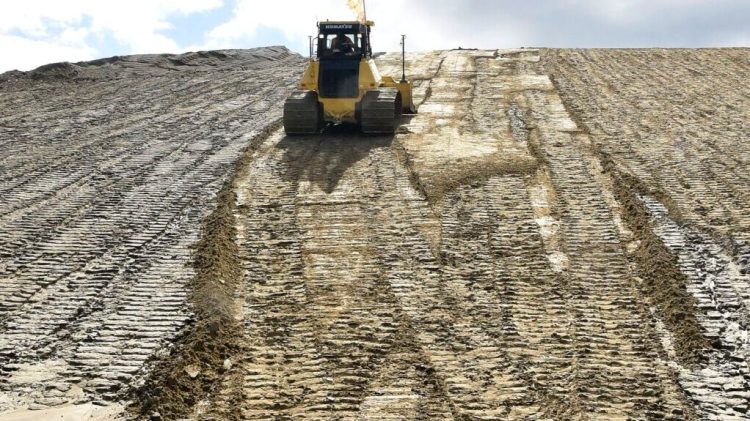NORRIDGEWOCK — Officials at the Crossroads Landfill have introduced a plan to extend operation of the facility to 2041.
The project, called Phase 14, would occupy about 49 of the 933-acre landfill property and implement a variety of initiatives, including textile diversion, hazardous material diversion and composting.
Additionally, it would include new infrastructure to manage leachate, landfill gas and stormwater and add access roads and an environmental monitoring system.
The town held an informational meeting Thursday night at Mill Stream Elementary School. Waste Management officials, environmental consultants, geologists and civil engineers presented details of the project and answered questions. The gathering included several stations, each offering visuals showing how Phase 14 would look.
The Crossroads Landfill is owned by Waste Management Disposal Services of Maine, and serves more than 50 communities in central and western Maine.
The project proposes adding a composting facility to the site under an Organics Diversion and Composting Program, with the hope that organic materials will be kept out of the landfill to save capacity. Compost produced at the site will be made available at no cost to local residents.
The geology and hydrogeology findings said things were consistent with the current permitted landfill. Implementing Phase 14 would allow for routine monitoring of groundwater and surface water. A network of wells would allow the facility to quickly identify changes in water quality.
Current operations at the landfill include single-sort recycling, electronic waste diversion, battery diversion, cardboard recycling, wood-waste recycling, beneficial tire reuse, waste evaluation, sustainability consulting and renewable landfill gas-to-energy plant operations.
The Crossroads’ Renewable Landfill Gas-to-Energy Plant has been capturing gas released from waste decomposition to generate electricity since 2009. It powers two 20-cylinder Caterpillar engines. Annually, the system collects and burns 470 million standard cubic feet of landfill gas.
From the environmental side of the project, Normandeau Associates, an environmental consulting agency, completed a field assessment from 2017 to 2019, requiring that it map natural resources.
Normandeau has determined any impact on those resources would be offset with mitigation plans that were developed in concert with agencies including the U.S. Army Corps of Engineers and the Maine Department of Environmental Protection. No significant impacts to wildlife habitats were identified.
The Phase 14 project will include a Household Hazardous Materials Collection and Reuse Program to keep hazardous materials out of residential waste, and will continue throughout the life of the project. The Maine Chamber of Commerce estimates that the project will contribute $298.2 million to the region over the course of its lifetime. The annual average of property taxes is expected to remain consistent with the current figure of $254,00.
Waste Management officials said Jeffrey McGown, of Waste Management Disposal Services of Maine, will be filing a solid waste application with the Maine DEP early next month.
Copy the Story LinkSend questions/comments to the editors.




Success. Please wait for the page to reload. If the page does not reload within 5 seconds, please refresh the page.
Enter your email and password to access comments.
Hi, to comment on stories you must . This profile is in addition to your subscription and website login.
Already have a commenting profile? .
Invalid username/password.
Please check your email to confirm and complete your registration.
Only subscribers are eligible to post comments. Please subscribe or login first for digital access. Here’s why.
Use the form below to reset your password. When you've submitted your account email, we will send an email with a reset code.